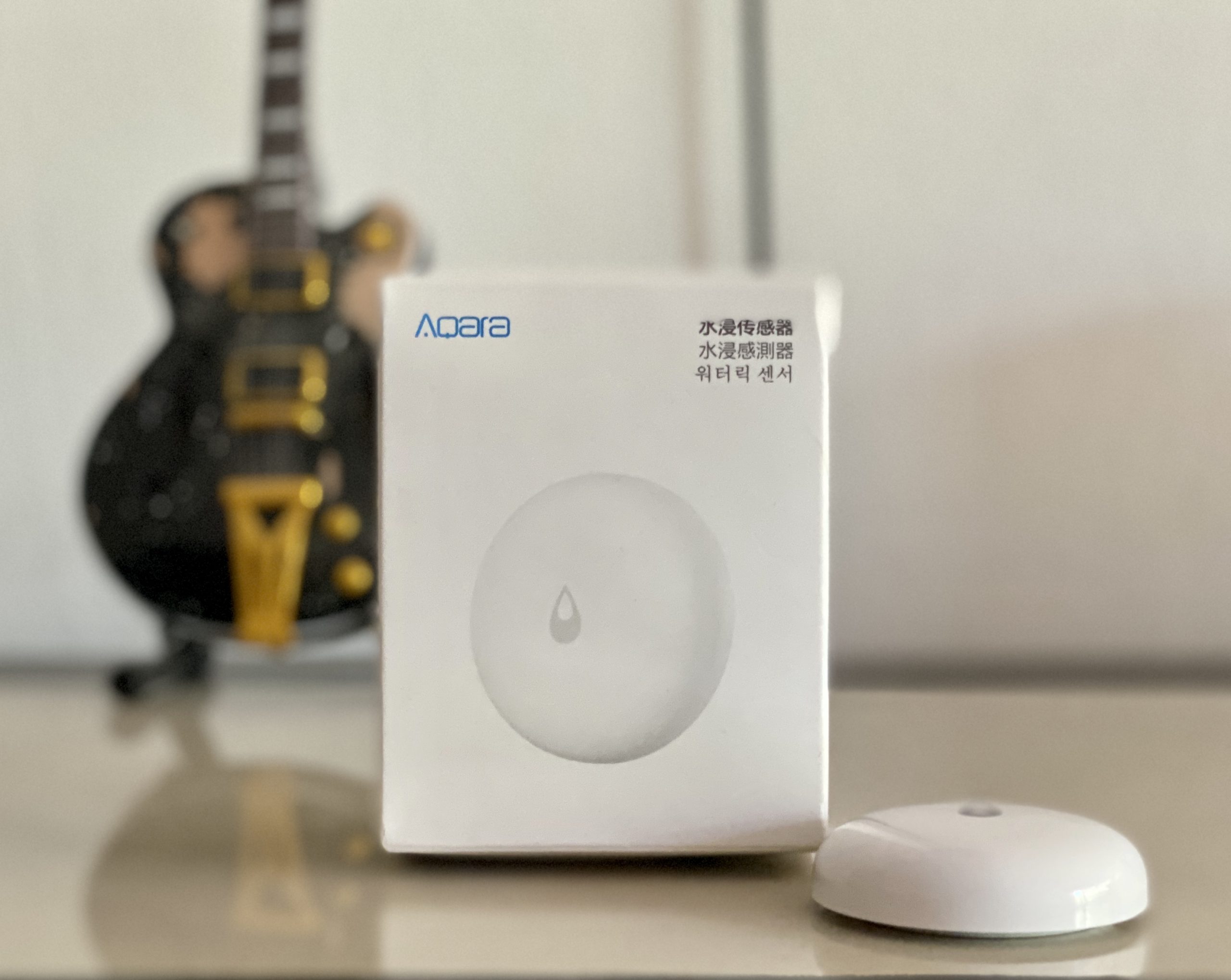The merits, value, and necessity of a lot of home automation can be debated endlessly with no discernible conclusion other than “to each their own”, but there are situations in there are clear and significant benefits. Water is an extremely powerful force not easily contained and when it inevitably makes its way somewhere we don’t want it, it can rapidly wreak havoc and the consequences can be quite costly.
HomeKit has had solutions for water leak sensors for some time and we even reviewed the first to come to the platform last year, but one of it’s downsides was the price. Aqara is seemingly aiming to significantly undercut its competition by offering a comparable product at nearly 1/3 of the price, but is it worth it?
Features
- Alarm / Notifications if moisture is detected (requires Aqara Hub)
- Compact design and footprint for flexible placement
- IP67 Dust / Moisture Protection Rating
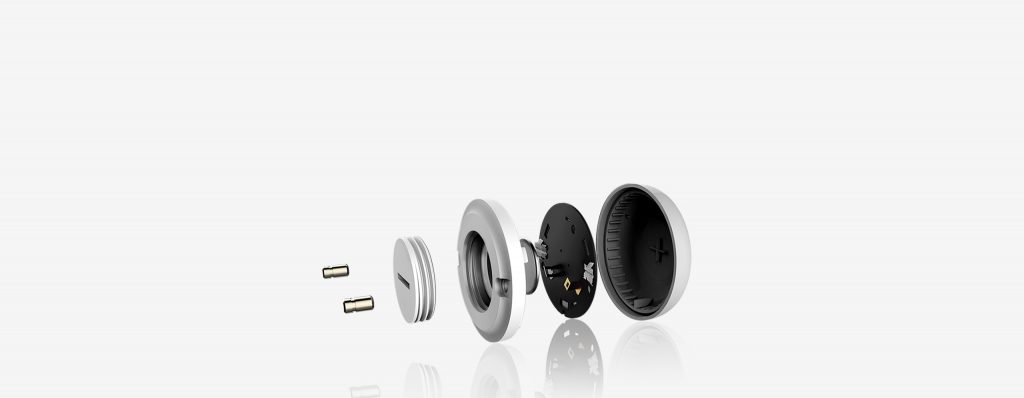
Need to Knows
- Aqara Hub required
- detects moisture at .5 mm
- CR2032 coin battery with 2-year battery life
- Operating Temperature: -10 to 55C (14 to 131F)
- Operating Humidity: 0 to 100% RH
Pros
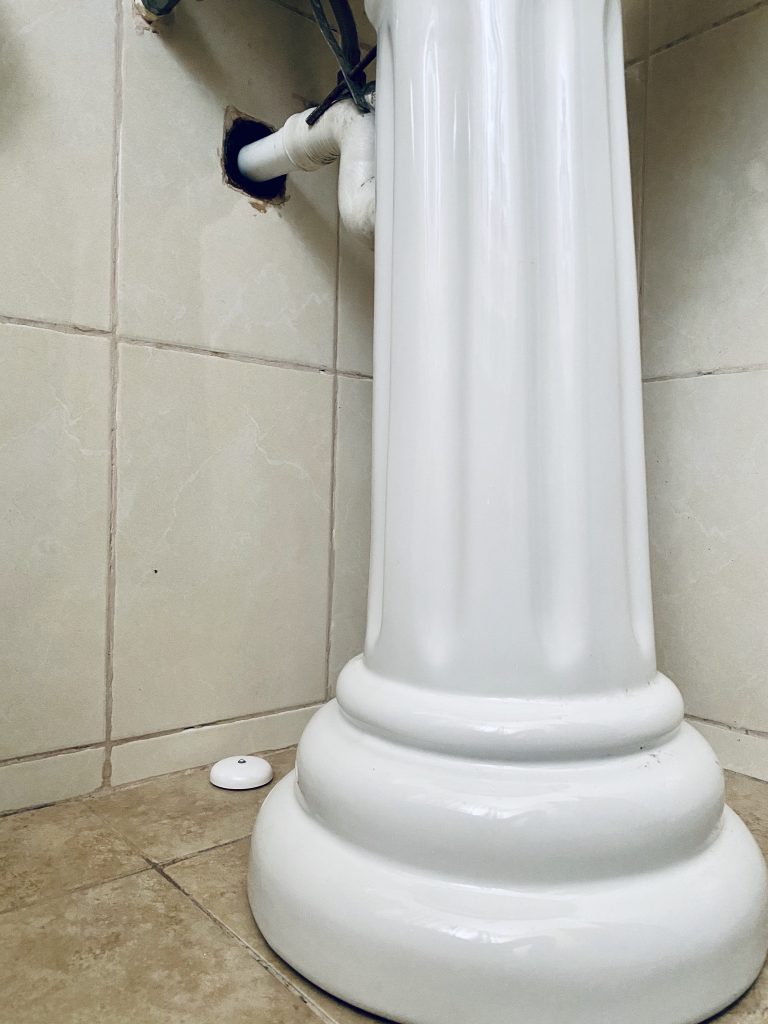
Water can get into your home through the tiniest of chinks in the armor and then work until it has caused some pretty massive damage. The Aqara Water Leak sensor has a very small footprint allowing you to place it virtually anywhere you may have a concern of a leak. The device’s unobtrusive design and modest marking allow the device to do its job without being distracting and gently let the uninformed know what it is and thus to leave it be to continue protecting your abode against unwanted moisture.
In the event moisture is detected, you want to know about it quickly in order to take proper action. That is after all why you even considered buying a water leak sensor in the first place. It’s also often that the areas that might be susceptible to moisture intrusion are in the dark, dingy depths of a basement or tucked away in the stuffy confines of an attic. In order to ensure that your sensor works reliably when you need it to, you must concern yourself with it’s connectivity. The Water Leak sensor from Aqara connects to the Aqara Hub using Zigbee which is not only a speedy wireless protocol, but also works with other Zigbee devices connected to the hub to more efficiently carry messages to and from the hub extending its range.
You might expect a device like a water leak sensor to have a significant level of ingress protection from dust and especially water, but you might not expect it to have a flexible temperature range. While it can be argued that the lower end of it isn’t so impressive, it can undoubtedly give you plenty of fair warning of a leak caused by frozen pipes. On the other extreme, if you live in a warmer climate and have ever needed to climb into an attic during the summer, you quickly realize the intense heat and the Water Leak sensor can withstand some hellishly high temperatures as well.
Cons
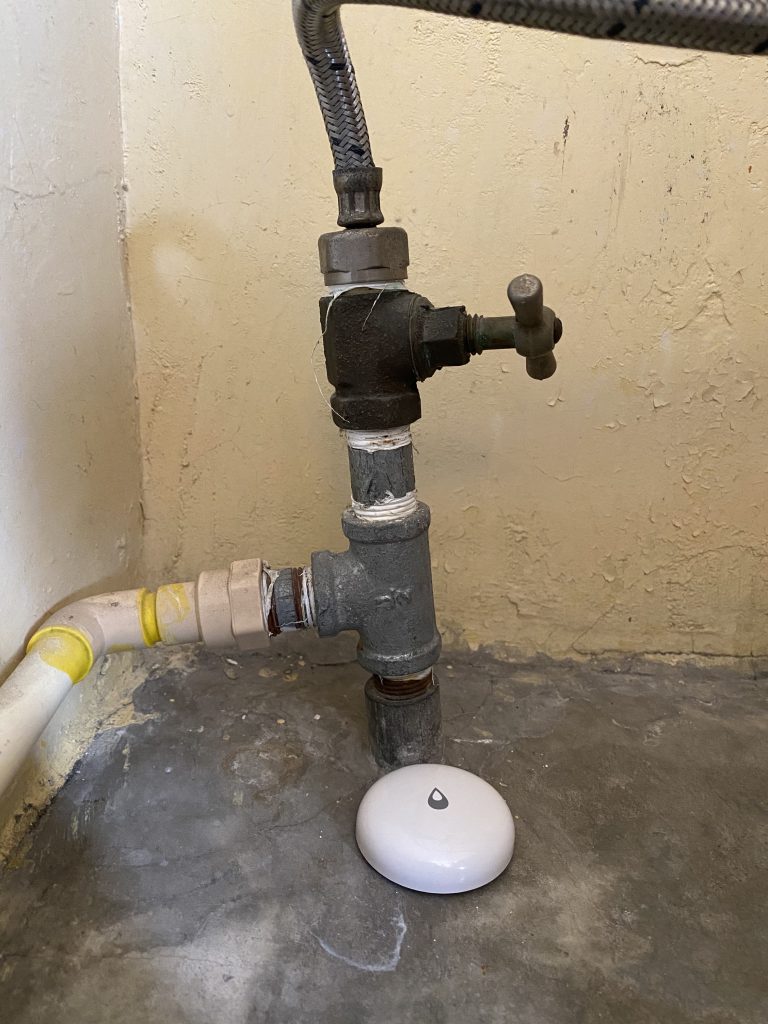
By their very nature, liquids diffuse. They tend to want to spread, but they have definite volume. This creates an issue in terms of placement of a water leak sensor as its detection range is relatively limited. If moisture sits just outside the sensor’s contact points, you won’t know about it until it’s too late. It would be nice to have the ability to attach leads tot he two contact points in order to extend the sensor’s detector field.
Perhaps understandably so as it is a water and dust resistant device, during my testing I found the shell difficult to separate in order to access the battery compartment. Thankfully, considering the CR2032 coin battery should last you an estimated 2 years with regular use, this isn’t something you should have to do on the regular, but it’s worth nothing.
Part of my review process is how intuitive a device is to setup. I do my best not to read instructions unless I have to. This, for me, speaks to the user experience and how most users would likely approach a new device. Pulling the sensor from its cozy if flimsy card stock packaging (not ideal, but what do you expect for the price?, it’s not abundantly clear how you might pair or reset this sensor. Unlike its brethren in the Aqara lineup, there’s no apparent reset/pairing button. Going into the app though, we see that the button lies beneath the surface of the top shell and a firm press on the water droplet image is how we can pair and reset the device. Again, not a huge deal since the app walks you through the process anyway, but I thought I’d throw it out there.
The App
A lot of what I enjoy about the Aqara system is the app experience and what you can do with it. While not the prettiest app out there, it gives us some pretty powerful automations that we don’t necessarily have access to in HomeKit. Specifically for the Water Leak sensor, not only can we create automations based on water detection, but also if water recedes. This gives us the ability to use the sensor in situations where we might want to monitor the level of liquid like an aquarium. The Aqara app also provides the ability to automate customizable push notifications in addition to or in lieu of trigger the alarm, other automations or scenes, or device actions. It is extremely flexible.
Admittedly, this and other sensors in HomeKit aren’t as interactive as other accessories like thermostats, humidifiers, or lights. They sit and wait for something to happen and then can trigger those more actionable accessories to swing into action. Regrettably, water leak sensors in HomeKit only have the ability to trigger scenes or accessories based on water being detected as opposed to detected and receding as with the Aqara app. The good thing about this flood sensor in HomeKit is that you can use it to trigger HomeKit accessories outside of the Aqara ecosystem which is NOT a function available in the Aqara Home app. For example, the video above shows a HomeKit scene that I have set up that turns the lights in the house blue and sounds a siren when any leak sensor in the house detects a leak. I would like the ability for Siri to announce which leak sensor it is though. Let’s hope this doesn’t happen often.
Final Thoughts
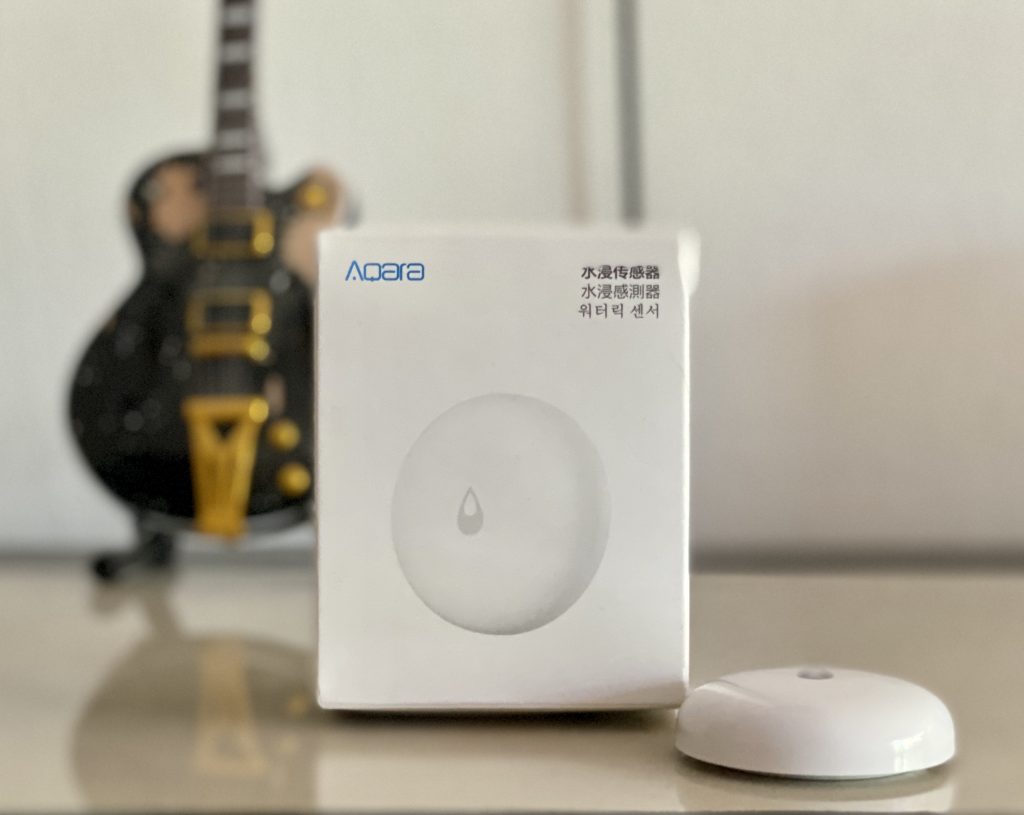
Burst pipes, a rusty old water heater, or bad roofing contractors are just a few of the things that can lead to potentially disastrous consequences and costly water damage in your home. It’s one thing to have to replace some floor boards, drywall, or insulation, but water doesn’t discriminate and will destroy irreplaceable memories of friends and family if we let it. There’s no worse feeling than knowing that with a few bucks you could have done something to help prevent this catastrophe. Regardless if you rent an apartment or own a house, water leak sensors are an essential part of any smart, smart home enthusiast’s arsenal and for a very relatively small amount, the Aqara Water Leak sensor can help protect you and possibly even those around you
We use income-earning affiliate links.
We may receive a small commission on purchases made using links on this page at no extra cost to you.
